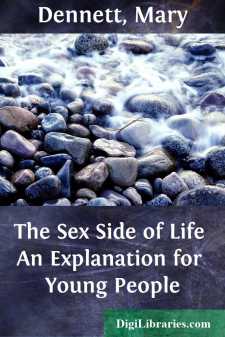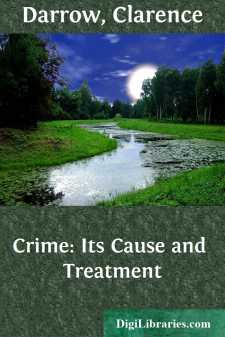Categories
- Antiques & Collectibles 13
- Architecture 36
- Art 48
- Bibles 22
- Biography & Autobiography 813
- Body, Mind & Spirit 142
- Business & Economics 28
- Children's Books 16
- Children's Fiction 13
- Computers 4
- Cooking 94
- Crafts & Hobbies 4
- Drama 346
- Education 46
- Family & Relationships 57
- Fiction 11829
- Games 19
- Gardening 17
- Health & Fitness 34
- History 1377
- House & Home 1
- Humor 147
- Juvenile Fiction 1873
- Juvenile Nonfiction 202
- Language Arts & Disciplines 88
- Law 16
- Literary Collections 686
- Literary Criticism 179
- Mathematics 13
- Medical 41
- Music 40
- Nature 179
- Non-Classifiable 1768
- Performing Arts 7
- Periodicals 1453
- Philosophy 64
- Photography 2
- Poetry 896
- Political Science 203
- Psychology 42
- Reference 154
- Religion 513
- Science 126
- Self-Help 84
- Social Science 81
- Sports & Recreation 34
- Study Aids 3
- Technology & Engineering 59
- Transportation 23
- Travel 463
- True Crime 29
The Sex Side of Life An Explanation for Young People
by: Mary Dennett
Description:
Excerpt
INTRODUCTION FOR ELDERS
In reading several dozen books on sex matters for the young with a view to selecting the best for my own children, I found none that I was willing to put into their hands, without first guarding them against what I considered very misleading and harmful impressions, which they would otherwise be sure to acquire in reading them. That is the excuse for this article.
It is far more specific than most sex information written for young people. I believe we owe it to children to be specific if we talk about the subject at all.
From a careful observation of youthful curiosity and a very vivid recollection of my own childhood, I have tried to explain frankly the points about which there is the greatest inquiry. These points are not frankly or clearly explained in most sex literature. They are avoided, partly from embarrassment, but more, apparently, because those who have undertaken to instruct the children are not really clear in their own minds as to the proper status of the sex relation.
I found that from the physiological point of view, the question was handled with limitations and reservations. From the point of natural science it was often handled with sentimentality, the child being led from a semi-esthetic study of the reproduction of flowers and animals to the acceptance of a similar idea for human beings. From the moral point of view it was handled least satisfactorily of all, the child being given a jumble of conflicting ideas, with no means of correlating them,—fear of venereal disease, one's duty to suppress “animal passion,” the sacredness of marriage, and so forth. And from the emotional point of view, the subject was not handled at all.
This one omission seems to me to be the key to the whole situation, and it is the basis of the radical departure I have made from the precedents in most sex literature for children.
Concerning all four points of view just mentioned, there are certain departures from the traditional method that have seemed to me worth making.
On the physiological side I have given, as far as possible, the proper terminology for the sex organs and functions. Children have had to read the expurgated literature which has been specially prepared for them in poetic or colloquial terms, and then are needlessly mystified when they hear things called by their real names.
On the side of natural science, I have emphasized our unlikeness to the plants and animals rather than our likeness, for while the points we have in common with the lower orders make an interesting section in our general education, it is knowing about the vital points in which we differ that helps us to solve the sexual problems of maturity; and the child needs that knowledge precisely as he needs knowledge of everything which will fortify him for wise decisions when he is grown.
On the moral side, I have tried to avoid confusion and dogmatism in the following ways: by eliminating fear of venereal disease as an appeal for strictly limited sex relations, stating candidly that venereal disease is becoming curable; by barring out all mention of “brute” or “animal” passion, terms frequently used in pleas for chastity and self control, as such talk is an aspersion on the brutes and has done children much harm in giving them the impression that there is an essential baseness in the sex relation; by inviting the inference that marriage is “sacred” by virtue of its being a reflection of human ideality rather than because it is a legalized institution....





